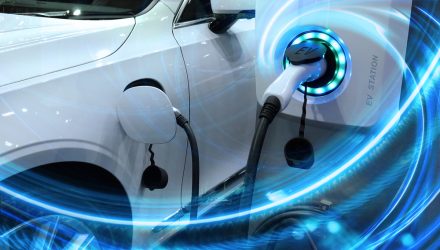Last year, Chinese EV and battery manufacturer BYD surpassed Tesla in units sold globally. The company threatens major global EV market disruption with its extreme affordability, relying on its vertical integration model to power through to success.
BYD managed to edge out its competition largely by producing affordable EVs. The Warren Buffett-backed EV manufacturer offers a number of vehicles with price points below $20,000. In the U.S., the cheapest option for those wanting to go electric starts at a little over $28,000, with the Nissan Leaf. The U.S. market currently only offers four EVs for under $40,000 according to Cars.com.
It makes the launch of BYD’s Seagull a potential game changer. In China, the Seagull recently received a 5% price cut and now sells for 69,800 yuan, or approximately $9,700, Reuters reported. The price cut is part of a larger price war happening in China currently, home of the largest EV marketplace globally.
“BYD has grown into this powerhouse in the new energy vehicle industry,” said Evelyn Cheng, Beijing correspondent for CNBC.
BYD’s Key to Success: Vertical Integration
Part of BYDs success comes from its long background in battery manufacturing. The company started in the 1990s with cellphone batteries and later upgraded to car batteries. Currently, BYD is one of a handful of major EV companies manufacturing newer lithium-ion batteries.
These batteries cost roughly 30%-40% less per kilowatt hour to make, Sam Abuelsamid, principal analyst at Guidehouse Insights, explained to CNBC. Cheaper, more efficient batteries allow for overall cost reductions of EVs. BYD also relies on its vertical integration, supplying most of its EV components in-house.
Cost remains a barrier to broad adoption of EVs outside of China. With BYD shaking up the market and offering increasingly more affordable options, there could be a bright future ahead.
The Chinese manufacturer now looks to take its success global with plans to build a factory in Europe and potentially in Mexico. The global EV leader exported 240,000 electric vehicles last year in 70 countries.
“They’re definitely preparing for the U.S. market, waiting for the right timing,” Michael Dunne, CEO of Dunne Insights, told CNBC. “U.S. and Europe promise a profitable market for them.”
Invest in BYD With KARS
The KraneShares Electric Vehicles and Future Mobility ETF (KARS) offers a good solution for investors looking to capture the potential long-term growth of major EV producers like BYD globally. The fund takes not just a global approach to EV exposure, but also invests along the entirety of the value chain.
KARS measures the performance of the Bloomberg Electric Vehicles Index, which tracks the industry holistically. This includes exposure to electric vehicle manufacturers, electric vehicle components, and batteries. It also includes hydrogen fuel cells and the raw materials used in the synthesis of producing parts for EVs.
The fund invests in many familiar car companies such as BYD, Tesla, Nio, and Volvo. It also goes a step beyond and invests in the companies that contribute to the EV value chain. These include Samsung, Panasonic, and Albemarle, a major lithium manufacturer.
BYD is the top holding of the fund, at 4.54% weight, as of 03/26/24. KARS carries an expense ratio of 0.72%.
For more news, information, and analysis, visit the Climate Insights Channel.

